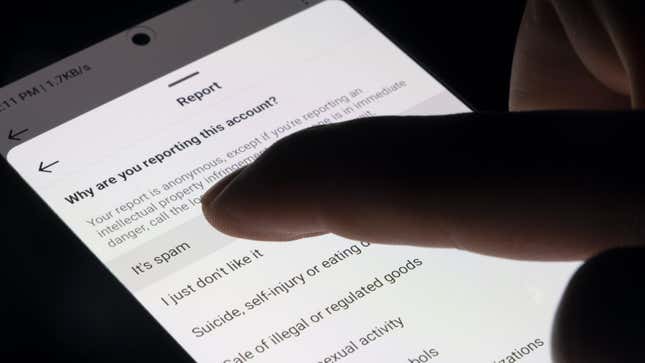
It’s no secret Instagram is plagued with fake accounts, bots, and impersonators. Just take a look at any commentssection on anytrending post and you’ll see it’sswarmed withthirst traps and crypto “moguls.”But there are farmore elaborate fakeaccounts out therethat have mastered the art of seeming genuine on the social network, and it can bedifficult to tell whether they are real—or not, and out to scam you.
Most of these offendersoffer some kind of “service” that requires you to place an order or give awaysensitive information, from the more innocuous (you email address or phone number so they can add you to a spam list), to the potentially damaging (a two-factorverification codeor banking信息). Some of these accounts are craftedwith such precision that the conventional rulesof thumb—lookat their profile pics, check theirfrequency of posts, consider theirfollower to following ratio, and general level of activity on the app—won’t always help you tell real from fake. Luckily, there is a better way to weed out these accounts.
Markers of a fake Instagram account
OnInstagramprofile, you’ll be able to tap on thosethree dotsthat open up a menu of options. Do so, and select“about this account” to look forthree crucial data points that Instagram provides to you. The first is the “date joined.”Most fake accounts will be relatively new, since scammers tend tomake new accounts whenever they are caught. What constitutes as “new” will depend on the context of the account and what they are promoting. But if an account is less than a year old, that’s a potentialred flag.
The next important point is the “account based in” information.The video above, from InstagrammerOpenigloo,shows you waht to look out for here. If you’re looking at an account for rentals in New York City but itis based in Nigeria, well. (Keep in mind that some scammers willselect not to share account location in their settings, so check for that too, and be wary if anything else seems suspicious.)
The last detail to check is the“former usernames” field. This might be the most tellingof all—while it is understandable that an account might have been created recently and be legit, when you pair the “date joined” with the “former usernames” together, you can geta clearer picture of the account holder’s history—because when a scammer has been caught out as a faker,a change of username can be aneasy and quick solution to start fresh without having to start over completely. If an account has hadmore than a couplechanges, that’s another reason tobe suspicious.
While these three datapoints might notconclusively revealwhether an account is fake or not, they are all factorsworth considering before you decide to trust it与你的数据。
